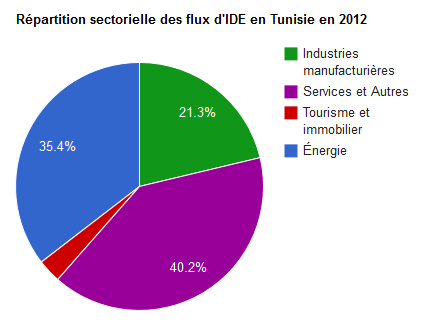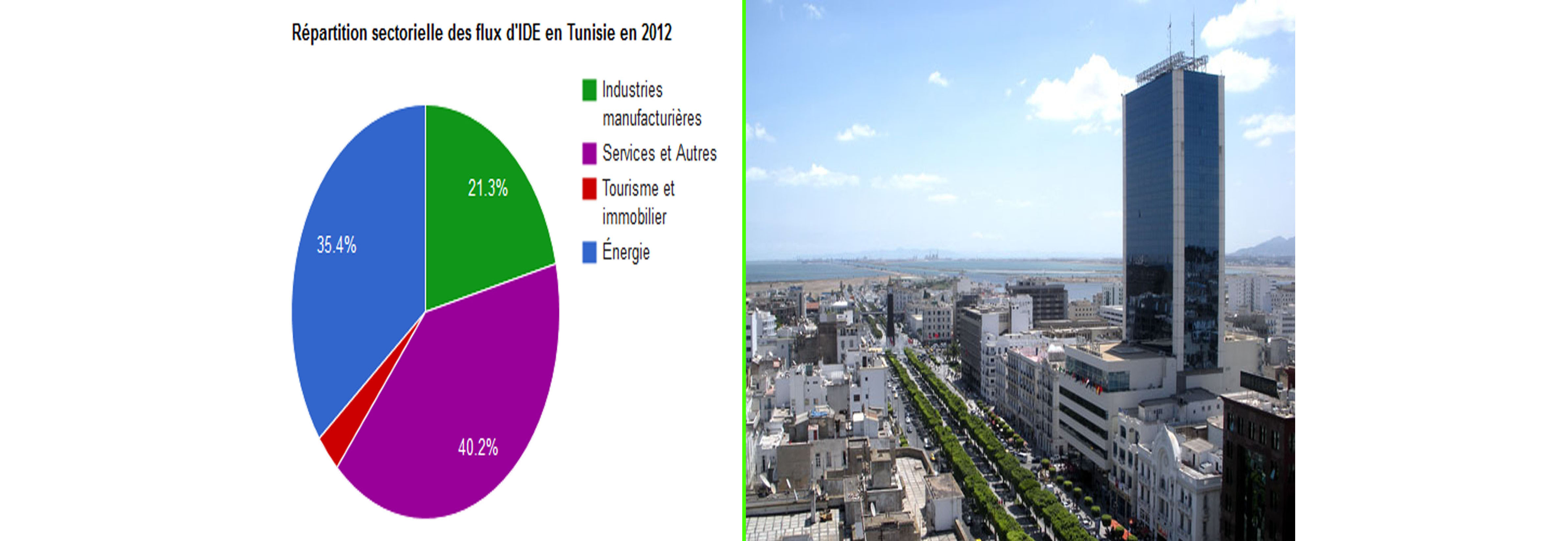Malgré le recul des IDE, l’économie tunisienne n’est pas « au bord du précipice » (FIPA)
La valeur des IDE a baissé de 1,3% durant le premier semestre 2013 par rapport à la même période de 2012, indique l’Agence de Promotion de l’Investissement Extérieur en Tunisie (FIPA). L’économie tunisienne peine a retrouver sa vitalité d’avant la révolution, précise l’agence. Son DG, Nourredine Zekri précise cependant qu’elle n’est pas au « bord du précipice ».
Dans un communiqué récent, l’Agence de Promotion de l’Investissement Extérieur en Tunisie a dressé un bilan mitigé des investissements au premier semestre 2013. La Tunisie a engrangé durant cette période un flux d’investissements de 939 millions de dinars dont 115.8 millions d’investissements de portefeuilles. Ce recul des investissements directs étrangers intervient alors que la Tunisie remontait doucement la pente en 2012. Les investissements étrangers avaient augmenté de 21,1% par rapport à 2011, l’année qui a suivi la révolution.
Depuis 2010, l’économie est moins attractive pour les entreprises étrangères du fait des troubles politiques survenus après la chute de Ben Ali. De fait, le constat a été fait d’une baisse des installations des entreprises étrangères depuis 2010 mais l’économie tunisienne semblait avoir réussi à surmonter cette crise en 2011. Le pays avait en effet retrouvé un niveau d’IDE entrant comparable à celui des années d’avant la révolution. Des espoirs non confirmés puisqu’au premier semestre 2013, on enregistre des baisses sectorielles conséquentes qui ne permettent pas de voir une amélioration durable pour l’économie nationale. Le secteur le plus touché est celui des services enregistrant une perte de 21,8% alors qu’il était le premier secteur d’accueil des IDE en 2012.
Vers un nouveau code d’investissement
Depuis 2009, l’économie tunisienne doit faire face à plusieurs secousses qui mettent à mal son économie et ses investissements. Déjà affectée en 2009 par la récession mondiale, la révolution socio-politique à l’œuvre en 2010 a engendré des impacts négatifs perçus comme des signes d’instabilité par les investisseurs. Sans compter la crise de la zone euro qui diminuent directement les I.D.E. Les Britanniques et les Français sont en effet les premiers investisseurs étrangers en Tunisie et l’état actuel de leur économie ne favorise pas les investissements.
 L’économie tunisienne est, depuis les années 70, dans une optique d’intégration poussée dans l’économie mondiale. Le FIPA, créé en 1972 fait figure d’interlocuteur unique de l’investissement. Au niveau régional, la Tunisie a absorbé 17% des flux d’IDE allant vers l’Afrique du nord en 2012, elle détient 15% des stocks d’IDE de la région derrière le Maroc et l’Egypte. La Tunisie à l’heure actuelle n’est pas “au bord du précipice” a déclaré le directeur général de la F.I.P.A, Noureddine Zekri. Selon lui, la Tunisie a réussi à surmonter la crise de 2011 et à revenir à un niveau d’IDE normal.
L’économie tunisienne est, depuis les années 70, dans une optique d’intégration poussée dans l’économie mondiale. Le FIPA, créé en 1972 fait figure d’interlocuteur unique de l’investissement. Au niveau régional, la Tunisie a absorbé 17% des flux d’IDE allant vers l’Afrique du nord en 2012, elle détient 15% des stocks d’IDE de la région derrière le Maroc et l’Egypte. La Tunisie à l’heure actuelle n’est pas “au bord du précipice” a déclaré le directeur général de la F.I.P.A, Noureddine Zekri. Selon lui, la Tunisie a réussi à surmonter la crise de 2011 et à revenir à un niveau d’IDE normal.
Un nouveau code d’investissement est en préparation afin d’être effectif en 2014. Toutefois, un rapport de la Cnuced sur l’investissement direct étranger présenté en Tunisie le 2 juillet 2013 souligne que la Tunisie est “à la croisée des chemins sur le plan économique”. Si le niveau d’IDE n’est pas catastrophique, il n’est pas suffisant pour relancer la machine économique dans un contexte socio-politique loin d’être stable, a souligné l’organisation internationale.
Source: www.maghrebemergent.com











Laisser un commentaire